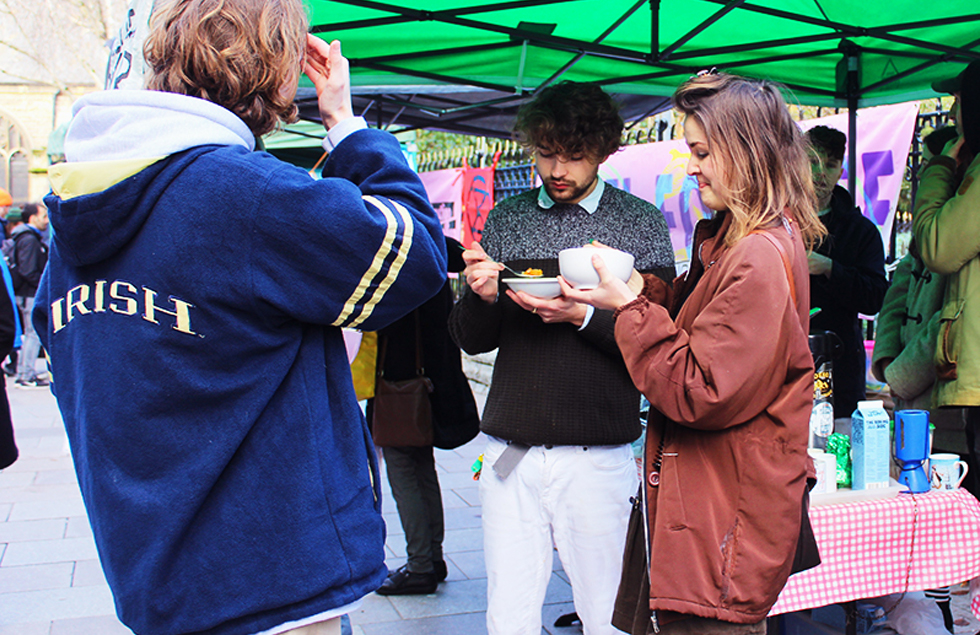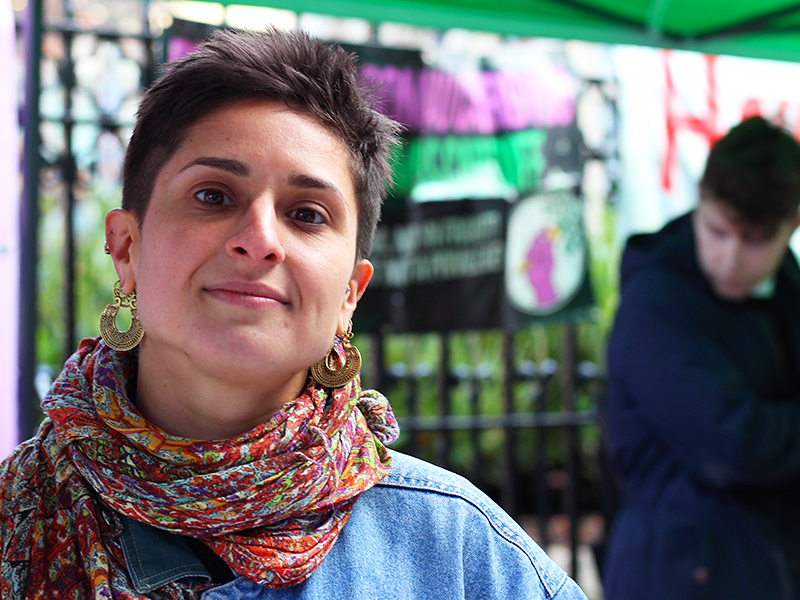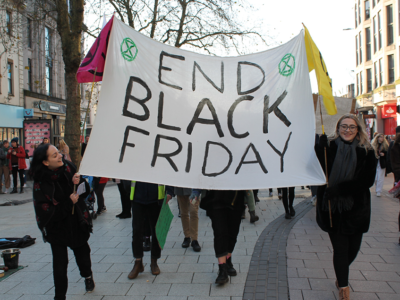The effects of meat production:
🥩 According to the UN’s Intergovernmental Panel on Climate Change, the agriculture industry accounts for 24% of globally produced greenhouse gases (GHG). In 2016, the top three private meat producing firms – Tyson, Cargill and JBS S.A. – produced more GHG than the entire of France.
🌳 According to the Rainforest Partnership, agriculture is by far the largest contributor to global deforestation. Between 65 and 70% of deforestation is directly attributed to Brazilian beef production.
💧Products often used in the global food supply chain end up in global water-ways and seas. The Federal Agriculture Organisation of the UN (FAO) has stated that livestock production has “serious implications” for global water quality.
💨 Reduction in global meat consumption is the “single biggest way to reduce your impact on planet Earth” according to University of Oxford researcher, Joseph Poore. 56% of global air pollution is accounted for by the global food supply chain.
We spoke to Alex who helped organise the Green Friday event.
Alex says, “The majority of famines don’t occur because there is no food, but because food becomes too expensive for the local population and is, instead of being distributed to those who need it, exported to foreign markets that can pay the elevated prices.
“We produce enough food to feed ten billion people, yet 815 million people suffer from chronic malnutrition as food is deliberately destroyed to keep prices inflated and profitable.
“Food Not Bombs is a good example of how such a food-system could work. All across the planet, not only in Cardiff, groups gather to cook vegan food, reclaimed before it is inappropriately disposed of, or donated from organic gardens or kind-hearted individuals.
“Everyone deserves food, and there is plenty to go around!”
A collective of groups has gathered at the Hayes Market to promote their anti-consumerism message and share vegan food

A gathering of organisation who are against mass consumerism held a green alternative market on Black Friday, which fell on 29 November.
Green Friday Rebel Market was held in the Hayes market, Cardiff. They urged people to boycott Black Friday with stalls and activities, as well as free vegan food.
Black Friday has become far bigger than just one day, with deals on offer for the week running up to the event, as well as over the weekend and into Cyber Monday.
The Green Anti-Capitalist Front (TGAF), who organised the event, were pleased with how the event was received.
A member of TGAF, who goes by the name of Alex, said, “We were able to do a lot of outreach, and if we were able to convince even a few people that another, more sustainable society is possible, then I would consider the event a complete success.”

The vegan food was provided by Food Not Bombs (FNB). One of the organisers of FNB, who prefers to be named as John, said that they meet every Friday to share vegan food and protest capitalism, war, poverty and the destruction of the environment.
“We give food to anyone who wants it,” said John. “We try and make it a social event, using non-plastic bowls and cutlery which encourages people to chat.”
Green Friday Rebel Market argues that, “we can’t continue to reward behaviour which is destroying the planet.” It’s a view that a volunteer at the Extinction Rebellion stall shares.
The volunteer, who prefers to be called Alice, believes it’s important for people to reduce the amount of meat they eat.

She thinks that government action and regulation is needed to encourage different shopping habits. She also believes a willingness to change food habits could result as public awareness of sustainable food increases.
The effects of meat production:
🥩 According to the UN’s Intergovernmental Panel on Climate Change, the agriculture industry accounts for 24% of globally produced greenhouse gases (GHG). In 2016, the top three private meat producing firms – Tyson, Cargill and JBS S.A. – produced more GHG than the entire of France.
🌳 According to the Rainforest Partnership, agriculture is by far the largest contributor to global deforestation. Between 65 and 70% of deforestation is directly attributed to Brazilian beef production.
💧Products often used in the global food supply chain end up in global water-ways and seas. The Federal Agriculture Organisation of the UN (FAO) has stated that livestock production has “serious implications” for global water quality.
💨 Reduction in global meat consumption is the “single biggest way to reduce your impact on planet Earth” according to University of Oxford researcher, Joseph Poore. 56% of global air pollution is accounted for by the global food supply chain.
We spoke to Alex who helped organise the Green Friday event.
Alex says, “The majority of famines don’t occur because there is no food, but because food becomes too expensive for the local population and is, instead of being distributed to those who need it, exported to foreign markets that can pay the elevated prices.
“We produce enough food to feed ten billion people, yet 815 million people suffer from chronic malnutrition as food is deliberately destroyed to keep prices inflated and profitable.
“Food Not Bombs is a good example of how such a food-system could work. All across the planet, not only in Cardiff, groups gather to cook vegan food, reclaimed before it is inappropriately disposed of, or donated from organic gardens or kind-hearted individuals.
“Everyone deserves food, and there is plenty to go around!”




